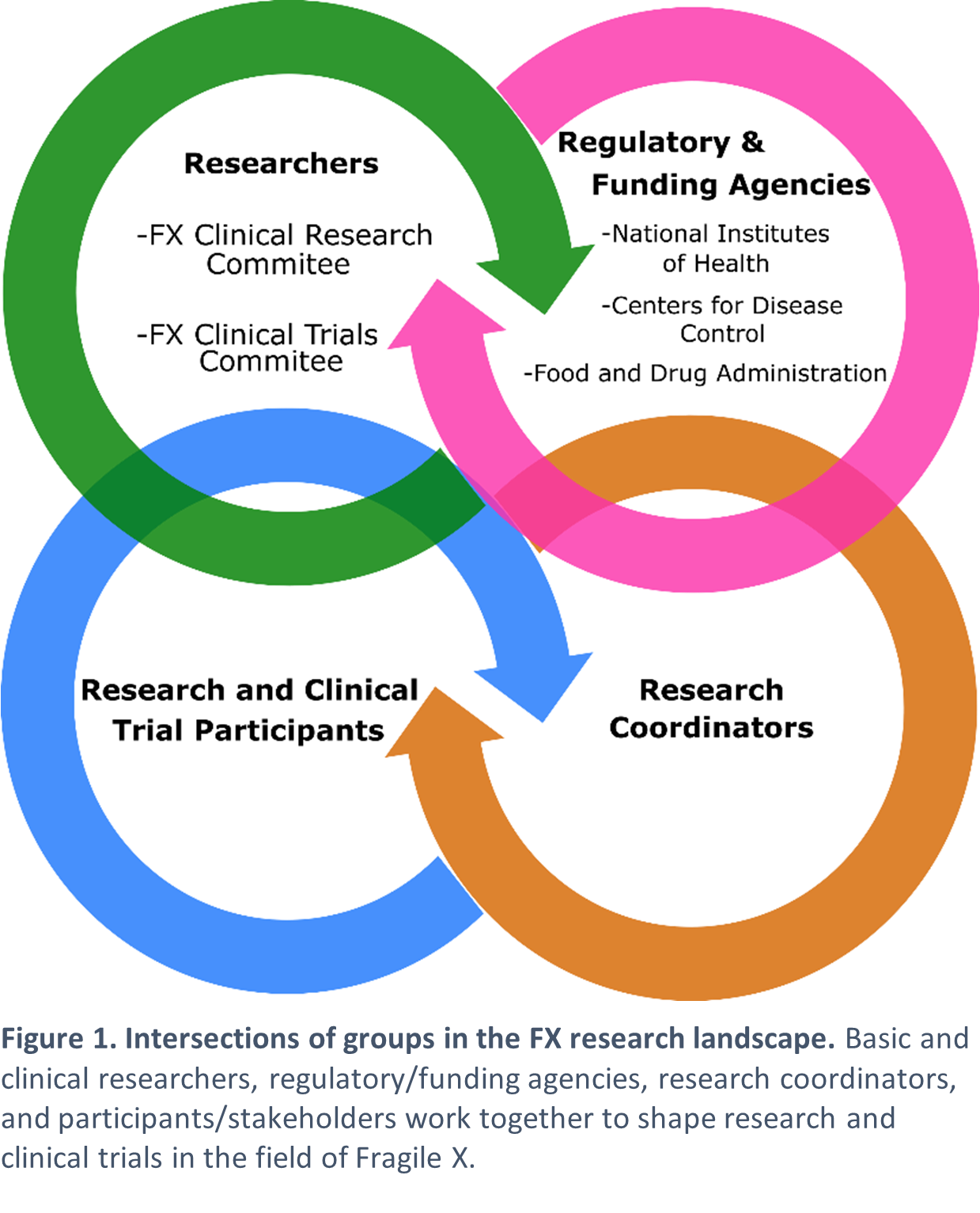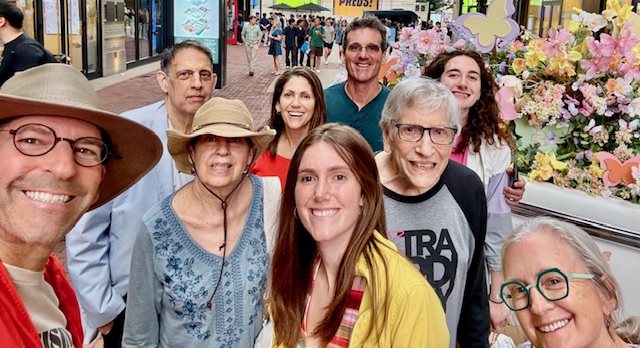“If We Can Fully Appreciate Our Differences, Our Therapies May Come”
Summarized by Dr. Kate Shelly, a 2022 NFXF Jr. Investigator
As a researcher, I always love going to the NFXF’s International Fragile X Conference, and 2022 was no exception. It was so lovely to see families in person once again and get lots of hugs. At the 2022 Research Landscape panel I think there were several important messages shared, but the final theme seemed to resonate throughout the whole conference. We should appreciate the differences in each individual and family with Fragile X (FX) and look forward to experiencing all the special gifts that only they can share to with us. These individuals not only bring us joy, but they may also be the keys to unlocking successful therapeutic options.
Summary
 This panel shared who contributes to FX research, who decides which topics are priorities, how researchers interact with the government, and how families can have the best experiences as participants. These groups of researchers (Drs. David Hessl, Liz Berry-Kravis, Craig Erickson), regulatory/funding Agencies (Dr. Tracy King, NIH), research coordinators (Amie Milunovich, Angel Wang, Jean McColl), and stakeholders (Emily Mack, Laurie Bridges, Kara Frech, Missy Zolecki) work together to shape FX research and help us understand what changes FX needs to find better treatments for families (Figure 1). Researchers within the National Fragile X Clinical & Research Consortium (FXCRC) and NFXF’s Clinical Trials Committee (CTC) work with government agencies to conduct studies like FORWARD and engage parents to identify symptoms and behaviors of the highest concern. Researchers and families advocate for the FDA to fund research and recognize these results as benchmarks for clinical trials. It takes all three groups to recognize challenges, prioritize them, and work toward treatments.
This panel shared who contributes to FX research, who decides which topics are priorities, how researchers interact with the government, and how families can have the best experiences as participants. These groups of researchers (Drs. David Hessl, Liz Berry-Kravis, Craig Erickson), regulatory/funding Agencies (Dr. Tracy King, NIH), research coordinators (Amie Milunovich, Angel Wang, Jean McColl), and stakeholders (Emily Mack, Laurie Bridges, Kara Frech, Missy Zolecki) work together to shape FX research and help us understand what changes FX needs to find better treatments for families (Figure 1). Researchers within the National Fragile X Clinical & Research Consortium (FXCRC) and NFXF’s Clinical Trials Committee (CTC) work with government agencies to conduct studies like FORWARD and engage parents to identify symptoms and behaviors of the highest concern. Researchers and families advocate for the FDA to fund research and recognize these results as benchmarks for clinical trials. It takes all three groups to recognize challenges, prioritize them, and work toward treatments.
The panel also shared key insights about how clinical research coordinators can be the greatest allies during research studies since they touch all parts of the research cycle. They understand what researchers need from participants, how to comply with federal agencies, who might be the best fit for a given trial, and how to configure visits to make participants and their families the most comfortable. They can plan visits around you or your child’s capabilities, minimizing potential problems, and they can wrangle the doctors into the right place. That’s pretty incredible! Has anyone checked to see if they need more coffee? Finally, participants and parents offered experiences and tips about going through the research process. Pro tips from parents included making a checklist of the schedule so individuals with Fragile X syndrome can track the activities they’ve finished and reframing the scary stuff. Blood pressure checks should really always be called an “arm hug,” am I right? They were fortunate to have mostly good experiences, but it can be a lot of work to keep up with all the visits, blood draws, and time commitments. So, work with those coordinators to find what will work for your family!
Why This Matters?
Understanding who shapes the focus of FX research and which government agencies are gatekeepers to clinical trials is key to knowing where people should channel their advocacy efforts. Researchers need families and the Fragile X community to push the FDA to adopt new outcome measures to better serve them. Families need to know that the clinical research coordinators can be their best ally for study participation. It’s also important to know how much each part of the research system is working together toward the common goal of finding therapeutic options to help families with Fragile X.
Next Steps
Research continues to evolve! Several great resources were shared to get involved in clinical trials, research, and advocacy:
- View active Fragile X research and contact study teams on the MyFXResearch Portal
- Join the International Fragile X Premutation Registry
- Learn more about how clinical trials work from the FDA website
- Advocate for Fragile X research at the NFXF’s annual Advocacy Day
- Ask a research coordinator or find a clinic near you and ask about their research! For example, Emory has their own research website.
Thanks to the panelists for sharing their insights! Panelists included Missy Zolecki, National Fragile X Foundation, Director, Community Empowerment, David Hessl PhD, MIND Institute UC Davis, Professor, Angel Wang, Rush University, Clinic/Research Coordinator, Kara Frech, NFXF Southeast PA Chapter Leader, Board Member, Elizabeth Berry-Kravis, MD, PhD, Rush University Medical Center, Professor, Amie Milunovich, National Fragile X Foundation, FORWARD National Coordinator, Laurie Bridges, National Fragile X Foundation, NFXF Houston Chapter Leader, NFXF Board Member, Tracy King, MD, MPH, NIH/NICHD, Medical Officer, Craig Erickson, MD, Cincinnati Children’s Hospital Medical Center, Professor, Randi J. Hagerman, MD, UC Davis MIND Institute, Medical Director Fragile X Research and Treatment Center, Emily Mack, National Fragile X Foundation, NFXF Board Member, Jean Luan McColl, Emory University, Clinic/Research Coordinator






